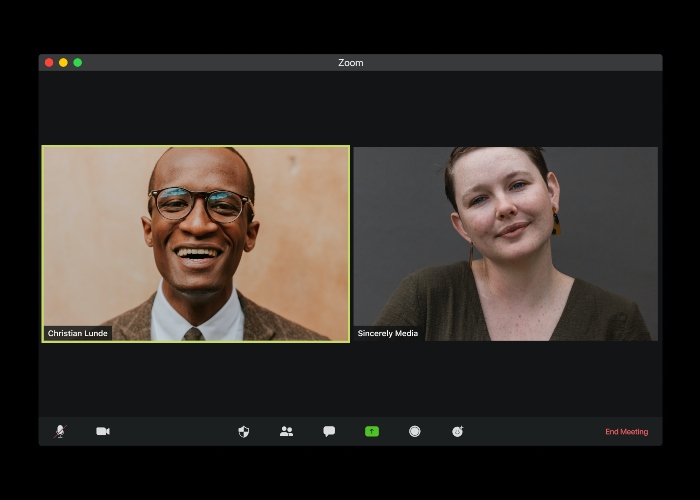Virtual events – a whole different way of engaging
June 12, 2020
Whoever you are, wherever you are, you have likely noticed that in-person events have been cancelled everywhere over the past several months. As the industry adapts to life with COVID-19, more event organizers are asking themselves, “can we move our conference or event online?” The answer, in most cases, is yes, but switching between in-person and online isn’t always a direct translation. There are a multitude of differences between an event at a physical venue and one that takes place on the internet, and they affect each stakeholder in different way. Here are just a few:
1. Co-ordinators
The job of an event planner, co-ordinator or manager has traditionally been very hands-on. They booked venues and caterers, created floor plans, liaised with photographers and suppliers, and a million other odd jobs, because event planners are super heroes. With events moving online, these professionals have to adapt and find creative ways to assist their clients in what for many is unknown territory. This includes researching and mastering different platforms, whether for webinars and meetings, or for more all-encompassing event experiences. Clients look to event co-ordinators to be a wealth of knowledge on these platforms and to help guide them through these changes to ensure their events are successful.
In some ways, the job remains the same: working with presenters and AV professionals to ensure everyone has the equipment they need, managing guest registration and providing support to client and guests alike. But co-ordinators now have an amazing opportunity to be on the forefront of what may be a long-term change in how the event industry runs. What better time than now to learn how to navigate this new normal?

2. Attendees
Regardless of the sector in which you work, you’ve probably noticed a steep rise in the number of webinars you’ve been invited to attend. Many people are experiencing webinar fatigue, and those working from home may face challenges in concentrating. Whether it’s due to having family members nearby, knowing there’s chores to take care of, or simply knowing that no one is “watching”, they multitask instead of giving their undivided attention to the presentation.
Therefore, it’s more important than ever to ensure that once you have secured an audience, you need to make the experience as meaningful for them as you can. For example, ensure you have a dynamic presenter that grabs (and holds) their attention, or try adding interactive elements to your webinar or virtual event like social media campaigns, polls, or surveys. Message boards and discussion groups are another way to make attendees feel seen and heard, and possibly create networking experiences.

3. Presenters
Presenters face a similar challenge to attendees, though on the receiving end. When presenting to a group in person, the social contract keeps most attendees from busying themselves with other things, or from getting up and leaving if they become disengaged. This is not the case when presenting on a webinar or livestream. There is nothing preventing an attendee from closing their browser if the content or presentation style isn’t appealing.
Presenters can remedy this in a few ways. Arguably the most important way to do so is to give a larger-than-life performance. Audiences – both in-person and online – respond well to high energy and story-telling. If a presenter can convey why a topic matters to them personally, they can help audiences see why they topic should matter in their own lives. For more on presenting online, check out our tip sheet!

4. Sponsors
We all know that a good sponsor can make or break an event, and not just from a budget standpoint. Sponsors are a partner that can provide keynote speakers or panelists, fun swag for attendees, and networking opportunities. The shift to online has been particularly daunting for sponsors, and for the co-ordinators who work with them, as there is in-person face time with attendees and the ROI for virtual event sponsorship can be much harder to measure. But all is not lost!
While it’s true that moving online can provide less face-to-face interaction between audiences and sponsors, it can provide many more unique opportunities. For virtual events with landing pages, sponsors can gain exposure by having their logo and website link located where everyone will see it as they click through to different aspects of the event. Many platforms have the ability to create “virtual booths” where attendees can click to find out more information about the sponsor, or even enter a chat room where they can speak with representatives from the company or organization. For larger scale online events, organizations are even sending event packages to their attendees ahead of time filled with various swag items, which is a great way for sponsors to still get their names into the home of their target audience.
We have barely scratched the surface of all that is possible with online events. Here at Georgian College Conference and Event Services, we’re committed to staying at the forefront of event trends and guiding our clients through these difficult times. Over the next few months, we will continue to share blogs that delve deeper into each of the sections in today’s article, so you can come on this innovative journey and learn with us.
Need help with your own virtual meeting? Check out our meeting packages and get in touch today!